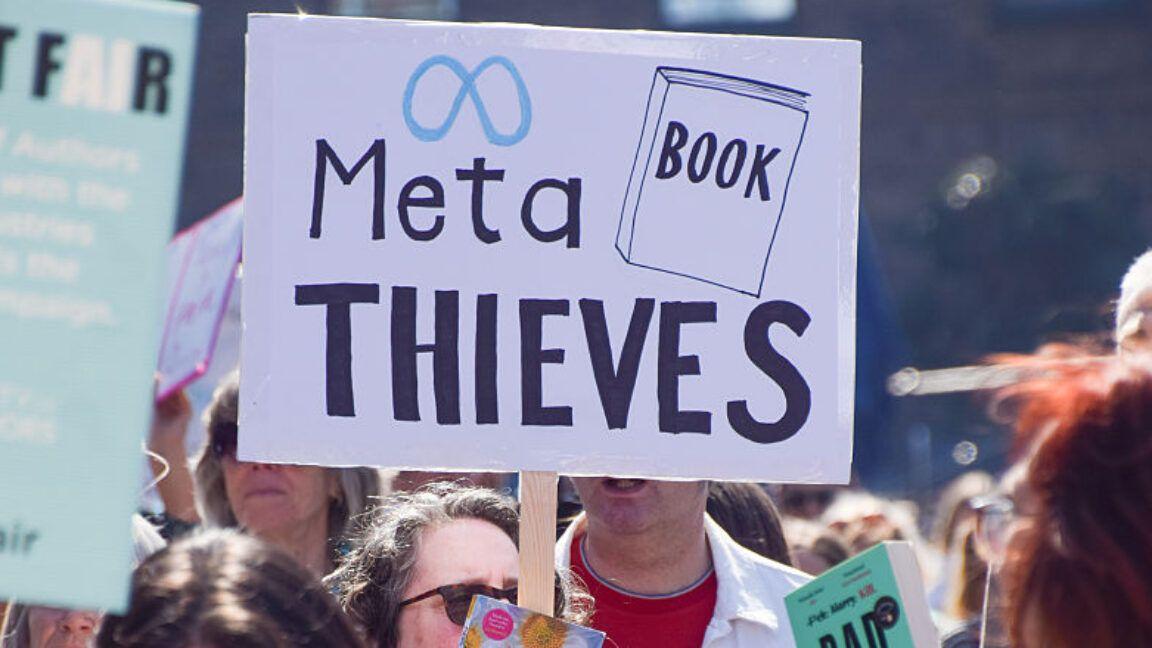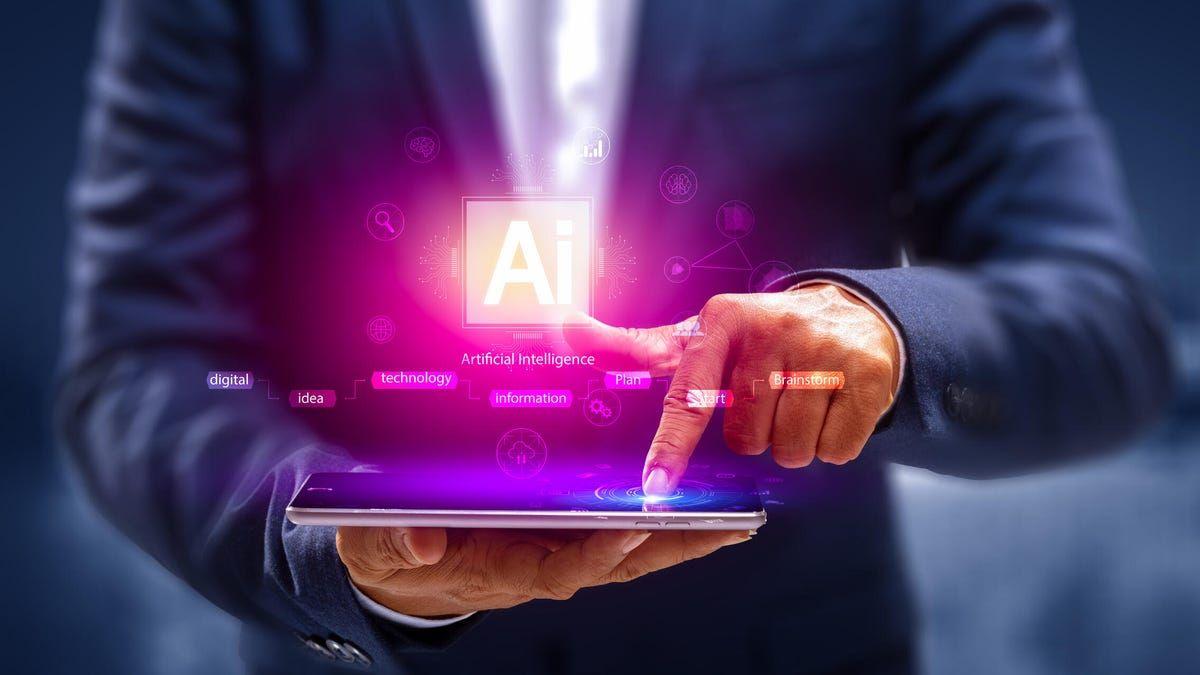AI Copyright Lawsuits Set to Shape the Future of Artificial Intelligence in 2025
2 Sources
2 Sources
[1]
Tech companies face tough AI copyright questions in 2025
In 2024, courts will hear arguments about whether tech companies like OpenAI and Meta made fair use of copyrighted material to train AI systems. Plaintiffs argue these companies used their work without permission. The outcomes could significantly impact the AI industry. Some companies have started licensing content, but many others continue their legal claims.The New Year may bring pivotal developments in a series of copyright lawsuits that could shape the future business of artificial intelligence.The lawsuits from authors, news outlets, visual artists, musicians and other copyright owners accuse OpenAI, Anthropic, Meta Platforms and other technology companies of using their work to train chatbots and other AI-based content generators without permission or payment. Courts will likely begin hearing arguments starting next year on whether the defendants' copying amounts to "fair use", which could be the AI copyright war's defining legal question. Tech companies have argued that their AI systems make fair use of copyrighted material by studying it to learn to create new, transformative content. Copyright owners counter that the companies unlawfully copy their works to generate rival content that threatens their livelihoods. OpenAI, Meta, Silicon Valley investment firm Andreessen Horowitz and others warn that being forced to pay copyright holders for their content could cripple the burgeoning US AI industry. Some content owners began voluntarily licensing their material to tech companies this year, including Reddit, News Corp and the Financial Times. Reuters licensed its articles to Meta in October. Other copyright holders, such as major record labels, the New York Times and several best-selling authors continued to press their claims or filed new lawsuits in 2024. AI companies could escape US copyright liability completely if the courts agree with them on the fair use question. Judges hearing the cases in different jurisdictions could reach conflicting conclusions on fair use and other issues, and multiple rounds of appeals are likely. An ongoing dispute between Thomson Reuters and former legal research competitor Ross Intelligence could provide an early indication of how judges will treat fair use arguments. Thomson Reuters-the parent company of Reuters News-alleged that Ross misused copyrighted material from its legal research platform Westlaw to build an AI-powered legal search engine. Ross denied wrongdoing, invoking fair use. US Circuit Judge Stephanos Bibas said last year that he could not decide before a jury trial whether Ross made fair use of the content. But Bibas canceled the scheduled trial and heard new fair use arguments in November, which could lead to a new ruling on the issue next year. Another early fair use indicator could come in a dispute between music publishers and Anthropic over the use of their song lyrics to train its chatbot Claude. US District Judge Jacqueline Corley is considering fair use as part of the publishers' request for a preliminary injunction against the company. Corley held oral arguments over the proposed injunction last month. In November, US District Judge Colleen McMahon in New York dismissed a case from news outlets Raw Story and AlterNet against OpenAI, finding that they failed to show they were injured by OpenAI's alleged copyright violations. The outlets' cases differ from most of the other lawsuits because they accused OpenAI of illegally removing copyright management information from their articles instead of directly infringing their copyrights. But other cases could also end without a determination on fair use if judges decide that copyright owners were unharmed by the use of their work in AI training.
[2]
Tech companies face tough AI copyright questions in 2025
Dec 27 (Reuters) - The new year may bring pivotal developments in a series of copyright lawsuits that could shape the future business of artificial intelligence. The lawsuits from authors, news outlets, visual artists, musicians and other copyright owners accuse OpenAI, Anthropic, Meta Platforms (META.O), opens new tab and other technology companies of using their work to train chatbots and other AI-based content generators without permission or payment. Courts will likely begin hearing arguments starting next year on whether the defendants' copying amounts to "fair use," which could be the AI copyright war's defining legal question. Tech companies have argued that their AI systems make fair use of copyrighted material by studying it to learn to create new, transformative content. Copyright owners counter that the companies unlawfully copy their works to generate rival content that threatens their livelihoods. OpenAI, Meta, Silicon Valley investment firm Andreessen Horowitz and others warn that being forced to pay copyright holders for their content could cripple the burgeoning U.S. AI industry. Some content owners began voluntarily licensing their material to tech companies this year, including Reddit, News Corp and the Financial Times. Reuters licensed its articles to Meta in October. Other copyright holders, such as major record labels, the New York Times and several best-selling authors continued to press their claims or filed new lawsuits in 2024. AI companies could escape U.S. copyright liability completely if the courts agree with them on the fair use question. Judges hearing the cases in different jurisdictions could reach conflicting conclusions on fair use and other issues, and multiple rounds of appeals are likely. An ongoing dispute between Thomson Reuters and former legal research competitor Ross Intelligence could provide an early indication of how judges will treat fair use arguments. Thomson Reuters - the parent company of Reuters News - alleged that Ross misused copyrighted material from its legal research platform Westlaw to build an AI-powered legal search engine. Ross denied wrongdoing, invoking fair use. U.S. Circuit Judge Stephanos Bibas said last year that he could not decide before a jury trial whether Ross made fair use of the content. But Bibas canceled the scheduled trial and heard new fair use arguments in November, which could lead to a new ruling on the issue next year. Another early fair use indicator could come in a dispute between music publishers and Anthropic over the use of their song lyrics to train its chatbot Claude. U.S. District Judge Jacqueline Corley is considering fair use as part of the publishers' request for a preliminary injunction against the company. Corley held oral arguments over the proposed injunction last month. In November, U.S. District Judge Colleen McMahon in New York dismissed a case from news outlets Raw Story and AlterNet against OpenAI, finding that they failed to show they were injured by OpenAI's alleged copyright violations. The outlets' cases differ from most of the other lawsuits because they accused OpenAI of illegally removing copyright management information from their articles instead of directly infringing their copyrights. But other cases could also end without a determination on fair use if judges decide that copyright owners were unharmed by the use of their work in AI training. Reporting by Blake Brittain in Washington Our Standards: The Thomson Reuters Trust Principles., opens new tab Suggested Topics:Litigation Blake Brittain Thomson Reuters Blake Brittain reports on intellectual property law, including patents, trademarks, copyrights and trade secrets, for Reuters Legal. He has previously written for Bloomberg Law and Thomson Reuters Practical Law and practiced as an attorney.
Share
Share
Copy Link
As 2025 approaches, the AI industry faces crucial legal battles over copyright infringement, with potential outcomes that could significantly impact its future development and business models.

AI Industry Braces for Landmark Copyright Decisions
As 2025 approaches, the artificial intelligence (AI) industry faces a pivotal moment in its evolution, with a series of high-stakes copyright lawsuits poised to shape its future. Tech giants like OpenAI, Anthropic, and Meta Platforms find themselves embroiled in legal battles against authors, news outlets, visual artists, and musicians over the use of copyrighted material to train AI systems
1
2
.The Core of the Dispute: Fair Use
At the heart of these lawsuits lies the question of "fair use," a legal doctrine that permits limited use of copyrighted material without permission for purposes such as commentary, criticism, or research. Tech companies argue that their AI systems make fair use of copyrighted content by learning from it to create new, transformative works. In contrast, copyright holders contend that this practice amounts to unlawful copying, potentially threatening their livelihoods
1
2
.Potential Impacts on the AI Industry
The outcomes of these cases could have far-reaching consequences for the AI sector. Industry leaders and investors, including OpenAI, Meta, and Andreessen Horowitz, warn that being compelled to pay for copyrighted content could severely hamper the growth of the U.S. AI industry
1
2
.Emerging Trends in Content Licensing
While legal battles continue, some content owners have opted for voluntary licensing agreements with tech companies. Reddit, News Corp, and the Financial Times have already entered such arrangements, with Reuters licensing its articles to Meta in October 2024
1
2
.Related Stories
Key Legal Developments to Watch
Several ongoing cases may provide early indications of how courts will interpret fair use in the context of AI:
-
Thomson Reuters vs. Ross Intelligence: This dispute over the use of Westlaw content in an AI-powered legal search engine could set a precedent for fair use rulings
1
2
. -
Music Publishers vs. Anthropic: A case involving the use of song lyrics to train the chatbot Claude is currently under consideration for a preliminary injunction
1
2
. -
Raw Story and AlterNet vs. OpenAI: Although dismissed, this case highlighted the importance of demonstrating harm in copyright infringement claims against AI companies
1
2
.
Potential Outcomes and Industry Impact
The resolution of these lawsuits could lead to various scenarios:
-
If courts rule in favor of AI companies on fair use grounds, it could absolve them of copyright liability, potentially accelerating AI development.
-
Conflicting rulings across different jurisdictions might lead to a complex legal landscape, necessitating multiple appeals and potentially reaching the Supreme Court.
-
Judgments favoring copyright holders could force AI companies to significantly alter their training methods or enter into widespread licensing agreements, potentially slowing innovation but creating new revenue streams for content creators
1
2
.
As the legal battles unfold, the AI industry stands at a crossroads, with the outcomes of these cases set to define the rules of engagement between AI developers and content creators for years to come.
References
Summarized by
Navi
Related Stories
Judges Side with AI Companies in Copyright Cases, but Leave Door Open for Future Challenges
25 Jun 2025•Policy and Regulation

Landmark AI Copyright Ruling: Thomson Reuters Wins Case Against Ross Intelligence
12 Feb 2025•Policy and Regulation

Legal Battles Over AI Training: Courts Rule on Fair Use, Authors Fight Back
15 Jul 2025•Policy and Regulation

Recent Highlights
1
Google Gemini 3.1 Pro doubles reasoning score, beats rivals in key AI benchmarks
Technology

2
Meta strikes up to $100 billion AI chips deal with AMD, could acquire 10% stake in chipmaker
Technology

3
Pentagon threatens Anthropic with supply chain risk label over AI safeguards for military use
Policy and Regulation





